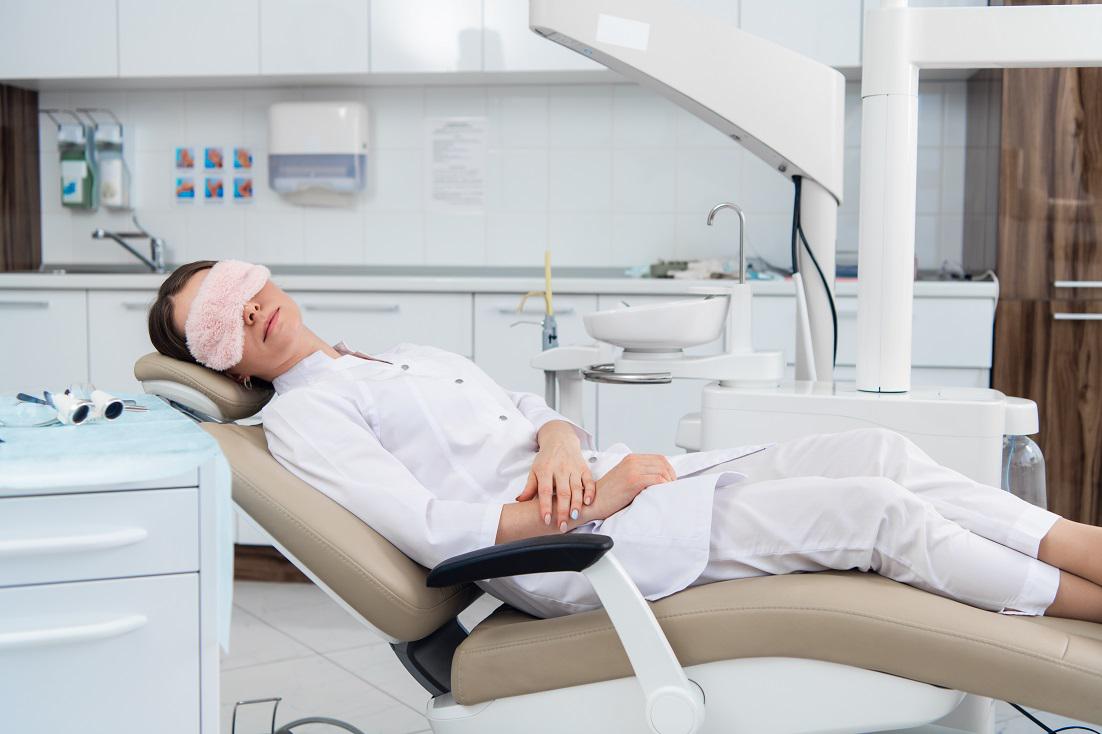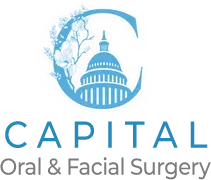Sedation Dentistry - Washington D.C.
 Anxiety caused by dental procedures is more of a common problem than you might realize, and general anesthesia can help make your dental treatment more comfortable. At Capitol Oral & Facial Surgery Center, we are happy to offer sedation dentistry in Washington D.C. At our practice, a number of sedation “sleep” dentistry techniques are utilized to help patients feel more relaxed and comfortable during dental treatments.
Anxiety caused by dental procedures is more of a common problem than you might realize, and general anesthesia can help make your dental treatment more comfortable. At Capitol Oral & Facial Surgery Center, we are happy to offer sedation dentistry in Washington D.C. At our practice, a number of sedation “sleep” dentistry techniques are utilized to help patients feel more relaxed and comfortable during dental treatments.
According to the American Dental Association, at least 15% of Americans put off going to the dentist because they have dental anxiety.
One way to help make your dental procedure more comfortable is by using general anesthesia or sedation dentistry. General anesthesia is a safe and effective way to make you feel relaxed and comfortable during your procedure. This form of dental medicine is most commonly used for severe dental phobia and provides deep sedation for many patients.
Our dental team offers general anesthesia for most patients with severe anxiety in Washington D.C. Our oral surgery team is highly trained and experienced in administering general anesthesia. We will work with you to ensure that you are comfortable throughout your procedure. Our top priorities are your long-term oral health care and trust in our dental office.
Sedation Dentistry For Your Dental Treatment
General anesthesia, or unconscious sedation, is typically used in more invasive procedures, such as wisdom teeth removal or emergency dental surgery, or if extensive dental work is needed, including multiple procedures. There are three main general sedation dentistry options: inhaled, intravenous, and injection.
Inhalation Sedation - Inhaled general anesthesia is the use of inhalation anesthetic agents such as sevoflorane, halothane etc- to cause a person to fall asleep. This level of anesthesia is generally performed in the hospital and used for complex surgical cases. Alternatively, use of nitrous oxide ( laughing gas) is the most common form of analgesia that is used in dentistry. It is administered through a face mask that delivers a mixture of oxygen and nitrous oxide, also known as laughing gas.
Intravenous Sedation - Intravenous, or IV sedation dentistry, is used in more complex procedures, such as jaw surgery. It is administered through an IV line that delivers the medication directly into your bloodstream.
This type of anesthesia allows our surgeons to carefully control the amount of medication you receive and ensure that you are comfortable throughout your procedure.
Our Washington D.C. Sedation Options
IV Sedation
IV sedation is an excellent solution for severely anxious or phobic patients. It is also necessary during more invasive or complex procedures.
IV sedation is useful for:
- Dental implant placement
- Wisdom tooth removal
- Tooth extractions
- Bone grafting
-
Sinus lifts
Benefits of IV sedation include:
- Minimizes anxiety and fear about dental visits
- Reduces pain or extreme teeth sensitivity
- Allows patients to remain comfortable during lengthy procedures
- Reduces the risk of gagging
- It helps patients who have a low pain tolerance or decreased sensitivity to localized anesthesia.
- Reduces feelings of claustrophobia
- Helps patients with a fear of needles (aichmophobia)
- Aids special needs patients (physical, cognitive, or behavioral) or patients who experience difficulty controlling their movements
IV sedation dentistry differs from general anesthesia, which puts patients to sleep and requires the presence of an anesthesiologist.
With IV sedation, you will be lightly asleep and may be able to respond to questions during the procedure. You may not remember much of the procedure afterward because IV sedation can cause amnesia.
General Anesthesia
General anesthesia is used to put patients into a deep sleep during their dental procedure. This type of sedation is typically used for more invasive procedures, such as wisdom teeth extractions. This is different than a local anesthetic, which only numbs the area around your mouth.
With general anesthesia, you will not be able to feel any pain or discomfort during your procedure. You will also not be aware of what is happening around you.
- Laughing Gas or Inhaled Minimum Sedation - Laughing gas is a type of dental sedation that uses nitrous oxide to relax the patient while they receive dental care. Nitrous oxide is a safe and effective way to help patients relax during their dental procedures. The effects of nitrous oxide dissipate quickly, so you will be able to drive yourself home after your appointment. This conscious sedation option is typically used for patients who experience mild anxiety when visiting the dentist or during minimally invasive procedures like fillings or cleanings.
- Oral Sedation - Oral sedation is another option offered for patients who experience anxiety during dental procedures. This type of sedation uses medication that is taken orally before the procedure. The medication will help you to relax and feel drowsy during your appointment. It is important to note that you will need someone to drive you home after your appointment. The effects of the medication can last several hours, so it is not safe for you to drive. Oral conscious sedation is best used for procedures like extractions or deep cleanings.
- IV Sedation - Sedation using an IV is the most effective way to help patients relax during dental procedures. This type of sedation is administered through a small IV in the arm. The sedative medication will help you feel relaxed and drowsy during your procedure. Like the oral option, the effects of the medication will last several hours, so you will need someone to drive you home from the dental office after your appointment. IV sedation dentistry is best used for invasive and complex procedures like wisdom teeth extractions.
Learn More About Our Washington D.C. Sedation Dentistry Options
Sedation dentistry can transform the way that you think about oral surgery. Our team has been trained to administer safe dosages of sedatives while monitoring your vital signs to protect your safety throughout your visit. If you are interested in receiving dental care in a relaxing and low-stress environment, contact our Washington D.C. sedation dentist today to find out more about your sedation dentistry alternatives.

